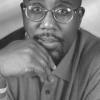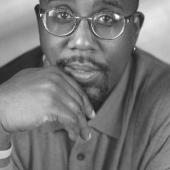While walking on the beach on a recent trip, I watched children of all ages, races, and nationalities strive to build structures in the sand. Some used sand only; some reached out and included bits of the environment in their creations—driftwood, bits of shells, articles of clothing, litter, and even dying life forms.
Some were more successful than others; however, all worked in earnest to leave their mark, to serve notice that they had been there, even though the tide would eventually wash it all away, and the next day a new group would be there striving to leave their imprint.
What happens to that primeval urge to serve notice to the world that "I exist" when you have no beach?
You learn to use what is available.
In some places, if you reach out and include the surrounding stimuli, the desire morphs into creating structures and forms that can be deemed antisocial. The desire to belong transforms into creating gangs; the need to stand out from the crowd turns into bullying; the need to leave one's mark becomes defacing public property and vandalism. I believe we can lead our invisible populations to an alternative outlook.
We can equip them to discover they are the sand and the builder and the structure simultaneously. When we can nurture any part of that desire to create, it can become the basis for positive choices and outcomes—as opposed to the spark that begins a spiral down the drain of the system.
For inner city youth, theater can help create more confident students with viewpoints that expand from the personal to include a more global vantage point. For so many, theater is, at best, entertainment for the masses, and, at worst, a diversion for the affluent. Yet I know it is more because I have lived it on many levels.
Theater saved me
First, as a teen, I was looking for some reason to believe the positive things I was being told everyday by parents and teachers, yet the world I observed around me contradicted what they said. Most of the adults I came into contact with on a regular basis hated their jobs and unwittingly provided very little incentive for me to want to emulate them.
I wanted more but really had no idea how to pursue it. In the fourth grade, I was labeled as "gifted" and enrolled in a "gifted and talented" program. This necessitated a 90 minute public bus ride from my African American neighborhood in central Saint Louis to a working class white neighborhood on the north side. If I arrived too early I was attacked by groups of teens and young adults. If I was late, I was truant. When I told my mother about the situation, she said only that there were prices to be paid for getting a quality education. When I told the school, they refused to believe their friends and neighbors could be bigots.
This went on until my sophomore year when I found myself at the center of a full scale race riot. As a result I lost contact with my love of learning, my family, and the surrounding community, and after knocking around for a year, I ended up in the Upward Bound program at Washington University—where I was introduced to the theater.
The program was rooted in the
Black Arts Movement whose primary tenet was that all art is a political statement by nature. In the works of Bullins, Baraka and Hansberry, I found characters that, like me, were searching for meaning. In my first play, I learned how to step out of my life and into another world where my creativity was rewarded by the audience's reaction. The mixture of laughter and applause encouraged me to seek more.
But something else happened also, something completely unexpected. Because I wasn’t afraid to go on the stage and speak, people in the program began to seek me out for opinions about social issues. I guess they felt that since I was saying the words, I had the knowledge.
When people keep asking for your opinion, eventually you should develop one. Slowly, I learned that what I thought and felt mattered.
Sharing the lessons
Years later, as an instructor, I have watched young people live different versions of the same story. My first group of students was five young people from Saint Paul Central High who had watched me perform on the Penumbra stage and who I worked with as a guest artist. They wanted to create an uncensored piece about their lives, and they wanted it be a professional experience.
The process became about empowerment as much as creativity. I had them find the venue, create press releases, arrange for box office coverage, and do most of the leg work for themselves—or so they thought. In reality, I would find out where they going and call ahead so everyone involved knew they had support. It was about establishing a foundation of confidence and, as much as having a successful arts experience, about getting young people to have conversations and build connections. Many of them went on to careers in neighborhood political organizing, and theater.
More recently, I worked with “Seeds of Change,” a program that uses theater to teach manhood skills (a intentionally vague term that encompasses everything from resume writing to anger management for African American males and those who support them). They started the school year with 22 students who were in danger of not graduating on time. By the end of the school year, 19 of the 22 graduated, and 18 went on to post-secondary education. Five young men even created their own program to mentor junior high school students through the arts.
So, from personal experience, I know that we can capture the imagination of our disconnected youth and convince them of the viability of creative self expression. From there, we stand a chance of introducing them to the collaborative nature of theater—and through that, they can learn how to work for positive outcomes with others in society. Perhaps we can provide the materials for them to leave a different type of mark on our communities.
So, for as long as I am able, I will remain committed to providing young people with the opportunity.




